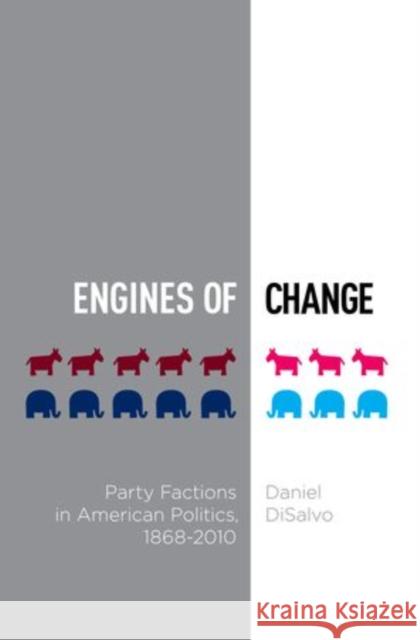Engines of Change: Party Factions in American Politics, 1868-2010 » książka
topmenu
Engines of Change: Party Factions in American Politics, 1868-2010
ISBN-13: 9780199891702 / Angielski / Twarda / 2012 / 264 str.
America's dominant two-party system forces the political parties to be inclusive and erect big tents. Since their origins, the Democratic and Republican parties have been ideologically variegated to accommodate such a demographically diverse and geographically expansive nation. Yet, given the variety of views within the parties, which prevail and why?
In Engines of Change, Daniel DiSalvo provides the first full account of the role of national intra-party "factions" in American politics. Factions are party sub-units that have enough ideological consistency, organizational capacity, and lasting power to sustain intra-party conflict. This definition widens the category to include many groups not previously categorized as factions, providing a more complete picture of all the different blocs interested in pushing their parties in a particular direction. DiSalvo follows the actions of twelve different party factions from the late 1860s to the present, showing how they have consistently shaped the larger party's ideology, the distribution of power in Congress, the patterns of presidential governance, and-ultimately-the development of the American state. From the Mugwumps, Stalwart Republicans, and Half-Breeds of the Gilded Age, to the Modern Republicans and New Politics Democrats of the mid-twentieth century, to the more recent New Right and Tea Party movements, the groups DiSalvo covers all had a significant effect on the way their party operated at the time, with the most significant factions even generating changes that lasted long beyond their own era. Indeed, factions have often been just as important as the parties themselves in driving political change. Sweeping in scope, Engines of Change will reshape our understanding of the forces most responsible for reconfiguring the political landscape of modern America.










